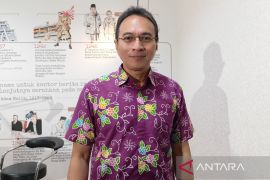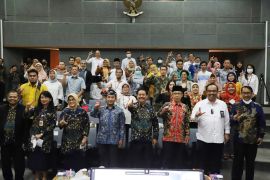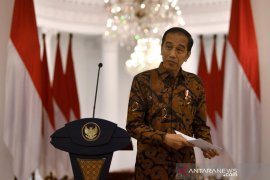In a discussion on Wednesday, Adib Abdushomad, Head of the Center for Interfaith Harmony at the ministry, highlighted the importance of avoiding negative influences rather than pursuing positive initiatives that may inadvertently cause harm.
This initiative represents the Indonesian government's commitment to upholding religious freedom.
"This is crucial because ordinary citizens are vulnerable to exploitation by extremist groups," Abdushomad stated.
He further explained that this concept aims to educate Indonesia’s religious communities about moderate practices, encouraging them to prioritize public welfare over the interests of specific groups.
“This concept emphasizes humanitarian values, public welfare, justice, balance, obedience to the Constitution, and respect for local wisdom,” he added.
During the same event, Amin Abdullah, a member of the Board of Directors at the Pancasila Ideology Development Agency (BPIP), emphasized that the concept of Beneficial Religion reinforces Pancasila as a shared framework for followers of different religions in Indonesia.
“There is no place for religious supremacy within our nation,” he noted. "Religion plays a vital role in society, but we must be aware of the risks of misuse, such as in identity politics and populism."
Abdullah also pointed out that religious superiority claims can hinder compromise and cooperation in national and state affairs.
The concept of Beneficial Religion has been included as a key agenda in the 2025-2045 National Long-Term Development Plan (RPJPN).
Aligned with the new government’s mission, this concept promotes harmony with the environment, nature, and culture, while also fostering increased tolerance between religious communities to achieve a just and prosperous society.
Related news: Downsizing to make Religion Ministry more professional: Umar
Related news: Religion Ministry asked to strengthen STEM education, digitalization
Translator: Sean Filo Muhamad, Katriana
Editor: Anton Santoso
Copyright © ANTARA 2024












